

Your Marketing Mix: the 7 Ps of Travel and Tourism Marketing

As a busy tour operator, developing a marketing strategy for your tour or activity business can feel like a daunting task. You already have your hands full ensuring your business is running smoothly, you can’t afford to waste time or money on the wrong things. Fortunately, you don’t have to go in without a plan. A good way to build out your knowledge of the fundamentals of marketing is to understand the marketing mix and how to use the 7 Ps of marketing in the travel and tourism industry.
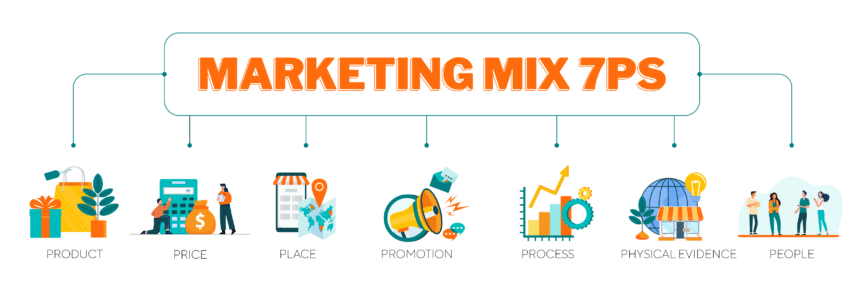
A marketing mix is the set of actions that a business uses to promote its brand in the market and influence customers to purchase their product. An effective marketing mix focuses its efforts in multiple areas to build a robust marketing plan. These areas were initially known as the 4 Ps of marketing (product, price, place, and promotion) and were first proposed by marketing professor Jerome McCarthy in 1960. Since then, marketing tactics have evolved and in an attempt to better address businesses in the service industry, the 4 Ps were expanded to 7 and now include people, process, and physical evidence.
Why Do They Matter?
Today, we’ll be exploring all 7 Ps of the marketing mix and how they can help you build an effective marketing strategy for your tour or activity business. While each element of the marketing mix is important on its own, collectively they provide a framework for creating a plan that is unique to your business and your target audience. Following the 7 Ps will help you better understand your brand so that you can develop a marketing strategy that works for you on all fronts.
The 7 Ps of Travel and Tourism Marketing

The first P of the marketing mix is product. That is, what is it that you’re selling to your customers? In most industries, the product is something that is tangible. The customer can walk into a store, purchase a product off the shelf, and take it home with them. However, in the tourism industry, the product provided is often an intangible service in the form of a tour, an experience, or even the destination itself.
Tangible or intangible, to give your product the best chance of success, it’s important to ensure that there is a demand for what you’re selling. Make sure you have a thorough understanding of the service you’re offering, the needs you’re fulfilling for your customers, and why they aren’t able to get it anywhere else. What makes your tour or activity unique and better than that of your competitors?
Answering these questions will help you discover your unique selling proposition (USP) and determine your positioning in the market. Above all, ensure that the tour or activity you’re providing is the best that it can be.
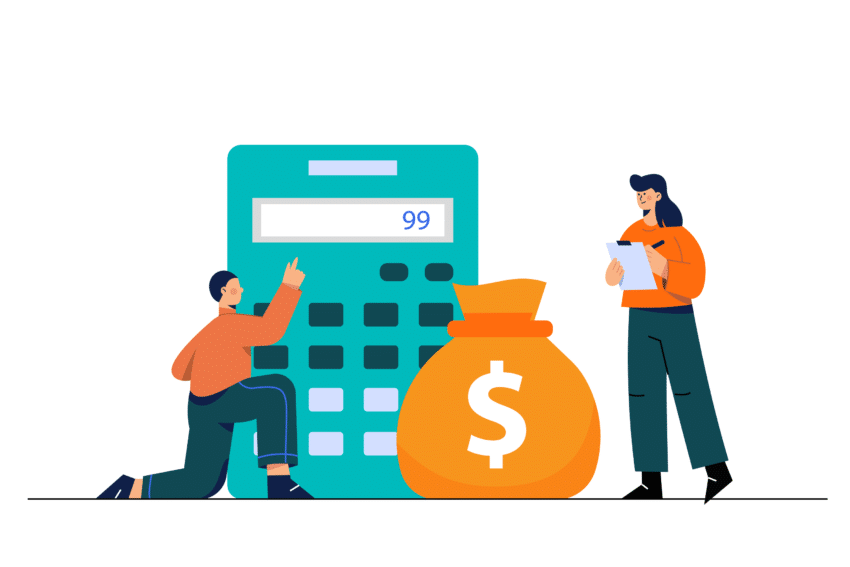
Next up is the price of your tour. What are your customers willing to pay for what you’re offering? Determining how to price your tour or activity package requires the careful consideration of factors such as competitor pricing, the budget of your target audience, and your own overhead and operational costs. Ultimately, you want to price your tour or activity competitively so that it is both attractive to your customers and profitable for your business.
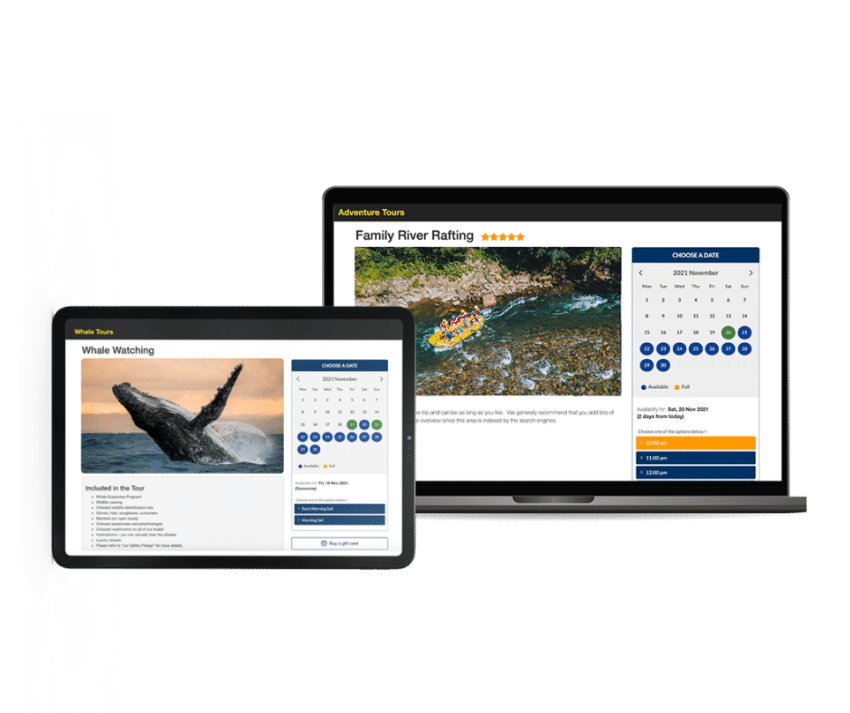
The third P of the travel and tourism marketing mix is place, or the distribution method of your product. This is where and how you make your tour or activity available to your customers for purchase. As mentioned earlier, because the service you’re providing is intangible, the places where your customers can book your tour will primarily be online, whether it be through your booking website, social media platforms, or online travel agencies (OTAs) like Expedia and Booking.com.
Your online booking website is one of the most important places your tours and activities can be found, so make sure it’s doing everything you need by booking a demo with Rezgo .
Physical locations like your tour or activity office as well as neighboring businesses that you’ve partnered with are also places where your customers might access your product.
The last of the original 4 Ps of marketing is promotion, or how your customers learn about your tour or activity. Tour promotion encompasses all the tactics that businesses typically use when they think about marketing. This includes both physical and digital advertisements, social media posts , press releases, events, special deals or limited-time offers, customer reviews, and partnerships with hotels or other local businesses at your destination. The possibilities are endless when it comes to tour promotion and are really only limited by your own creativity.

The people who represent your business and the customer service they provide are especially important when it comes to the success of a tour or activity company. Unlike businesses where physical products can sometimes speak for themselves, the overall experience a customer receives on a tour is greatly influenced by the people they interact and engage with. This includes tour guides, customer service representatives, and even booking agents. To ensure a positive experience for your customers, it’s important that anyone who interacts with your customers on your business’ behalf (even indirectly) is highly professional and knowledgeable about your products and services.
the sixth of the 7 Ps of tourism marketing is the process. The process that a customer goes through from the moment they book your activity to when they finally complete the tour should be as pleasant, convenient, and seamless as possible. Customers should be able to access any information they need with ease including their itinerary, booking info, waivers, etc.
Just as important is how your business decides to deliver this information to your customers. Plan and design your process so that it is easily replicated for efficiency, reliability, and consistency. A good booking system can automate a lot of your process to make sure the customer experience is smooth and efficient from start to finish.
Physical Evidence
Lastly, we have physical evidence. Once again, because the experiences and services provided by a tour or activity company are usually intangible, it can be difficult for interested customers to try them out before committing to a purchase or booking.
There are, however, still ways for tour operators to use physical cues to help convert potential customers. Some of these include website design, physical tour office layout, employee uniforms, brochures, marketing material, and souvenirs or free swag. It’s also worth highlighting any tangible elements of your tour that customers can look forward to in your promotional material or tour descriptions .
Measuring the Success of Your Travel and Tourism Marketing Mix
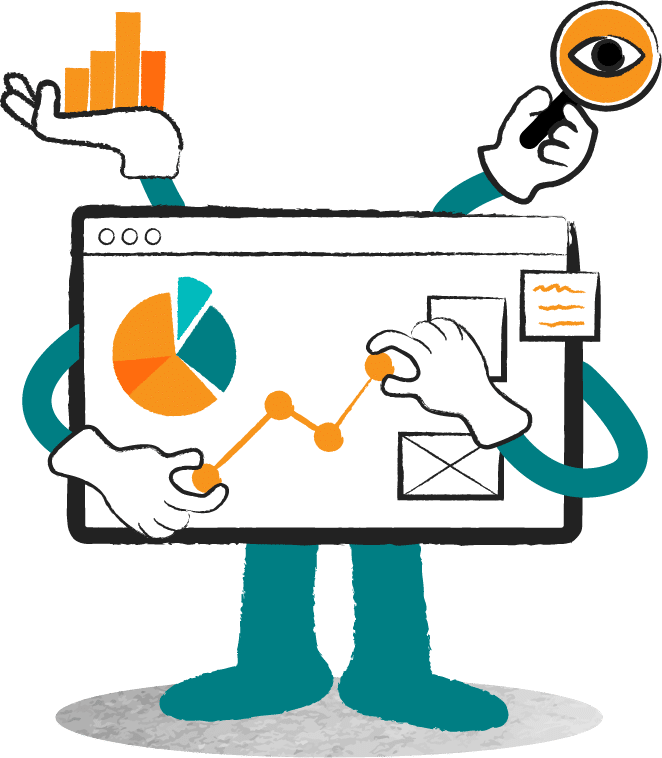
Using the 7 Ps of marketing to build out a strategy for your tour company is great, but how do you know if it’s working? Measuring the success of your tourism marketing mix can be accomplished in a few ways. The first is to calculate your return on investment (ROI) to determine whether the money you’ve spent on your marketing initiatives are actually bringing in enough sales for a profit.
Another way to check on the performance of your marketing strategy is by using analytics on engagement data. How many people actually saw or clicked on that ad, post, or email? How many of those clicks converted into a sale?
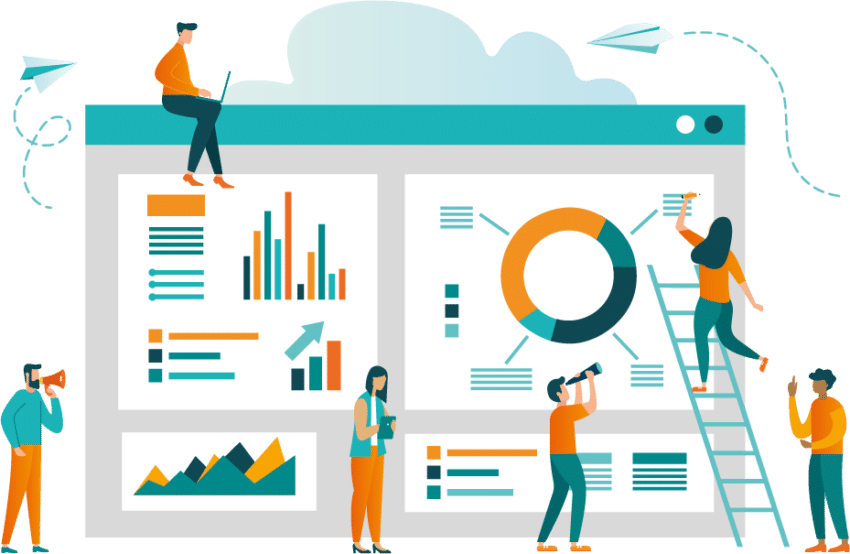
Rezgo offers a powerful reporting system that allows tour operators to track the performance of their marketing campaigns and analyze the impact of each referrer or promo code. By studying this data you can adjust your marketing strategy so that you’re focusing your effort and allocating your money in the most effective places.
There’s a lot to consider when developing a marketing strategy for your tour or activity business, but now that we’ve broken down the 7 Ps of a tourism marketing mix, you know exactly which areas you should be focusing on.
Work on planning and building out each marketing element separately, but remember that they need to complement each other and work together harmoniously for the biggest impact. Adjusting your strategy in one area should affect the way you approach another.
Rezgo helps tour and activity providers thrive by giving them the tools and guidance they need to work efficiently and expand their business.You’re passionate about providing amazing experiences. We’re passionate about building flexible tools to make your job easier and get you more bookings. Let’s work together to make your business thrive. Start using Rezgo today by signing up for free !
We can’t wait to see you launch your next marketing campaign. Good luck!

Written By | Edward Nieh
Edward Nieh is a freelance writer and copy editor working across multiple mediums for clients from various industries. He has a degree in creative writing with a focus on screenwriting for feature films.
Previous Article Advantages and Disadvantages of Online Travel Agencies (OTAs)
Next Article Special Interest Tourism: Find Your Niche
Related Posts

Articles , Increase Online Bookings , Tourism Trends
17 innovative tourism business ideas and trends for 2024.
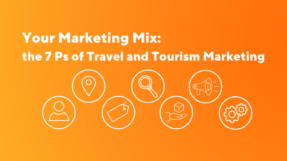
Articles , Increase Online Bookings , Marketing Strategies
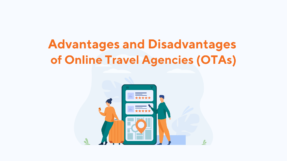
Articles , Increase Online Bookings , Tourism Best Practices
Advantages and disadvantages of online travel agencies (otas), search the blog.
- All Categories
- Increase Online Bookings
- Marketing Strategies
Most Popular Articles
- 17 Innovative Tourism Business Ideas and Trends for 2024 127 views
- Your Marketing Mix: the 7 Ps of Travel and Tourism Marketing 40 views
- Advantages and Disadvantages of Online Travel Agencies (OTAs) 38 views
- How to Create a Business Plan for Your Tour or Travel Company 12 views
- The Ultimate Free Guide to Starting a Food Tour Business 9 views
I have read and agree to the Rezgo Privacy Policy
GET STARTED
Sign-up for a free demo.
Lorem ipsum dolor sit amet, consectetur adipiscing elit, sed do eiusmo tempor incididunt ut labore et dolore magna aliqua.
Schedule A Demo
Academia.edu no longer supports Internet Explorer.
To browse Academia.edu and the wider internet faster and more securely, please take a few seconds to upgrade your browser .
Enter the email address you signed up with and we'll email you a reset link.
- We're Hiring!
- Help Center

Digital Marketing Mix Strategies in the Tourism Industry in Zimbabwe: A Masvingo Tourism Destination Perspective

International Journal of Engineering and Management Research

Related Papers
Daniel Massawe , Hyasintha Kazoba
This study assessed the role of internet in tourism marketing in Mwanza City. The objectives which guided the research were to identify the status of tourism marketing through internet usage in Mwanza City, to analyse the use of internet in marketing tourism in Mwanza City, to identify the relationship between tourism growth and the use of internet in Mwanza City and to identify the challenges facing the internet usage in marketing tourism in Mwanza City. The sample size of the study was 16 marketing or communication officials whose companies or organizations have registered and have the websites. The research used qualitative and quantitative methods in the presentation of data and research data were collected through interview and content analysis and the use of the secondary data. Data was analysed using thematic analysis, SPSS and Microsoft Excel and findings were presented in narrations, frequencies, percentages and charts. Findings of this research described that internet doesn't play much role as it should. Also the researcher discovered that there is no harmonization within tourism sector in electronic environment as well. But thanks to god the government has played a major role to ensure that the harmony is built within tourism industry by creating a tourism marketing portal which is incorporated by every recognized tourism company information needed by customer (s) or consumer(s) and which will ensure that there is cooperation and collaboration among stakeholders.
International Journal of Research -GRANTHAALAYAH
Gurneet Kaur
With the advent of superior Internet technologies, newer avenues for reaching out to target audiences have evolved. Digital marketing today has become an indispensable part of every business irrespective of its size and type. The increasing role of digital marketing has affected the way businesses promote their offerings to existing as well as new customers. The need for digital marketing has been felt like never before in the tourism industry wherein customers have instant access to all kinds of information on the latest offers and best prices. Today digital marketing plays a critical role in the success of each business which exists in the tourism industry. This paper examines the basic determinants of digital marketing and the importance of the same in the tourism industry.
rukiye kilili
Purpose: This paper examined e-tourism and digital marketing focusing on the opportunities and challenges in Africa using the social media marketing in relation to international tourist influxes, with particular reference to Nigeria. The study is stimulated by the increase of tourist’s influxes and digital statistics specifically in the advancement of technological age. Design/Methodology/Approach: Theoretical framework of the study was reviewed through literature review and web base method for data collection using the content analysis with particular reference to opportunities and challenges. through combining the theoretical framework and content analysis
Vincent oduor
“Iqtisodiyot va innovatsion texnologiyalar” ilmiy elektron jurnali. № 4, iyul-avgust, 2021 yil
Adham Israilov
What new opportunities "Digitalization" and "Digital Marketing" have brought to the sphere of Hospitality and Tourism? As Hospitality Industry and Tourism were flourishing till the COVID-19 Pandemic situation, with and without the implementation of Digital Marketing strategies and highly relying on the employment of Digital Marketing Tools. Initially, Digital Marketing was considered to be one of the auxiliary levers to refer to. Whilst, the current situation of COVID-19 Pandemic Worldwide transmuted Digital Marketing to the main fulcrum, that is the support point of Hospitality and Tourism Industry. Which, originally aimed at maximizing the revenue and profit of Hotels and boosting the economy of the country through the Tourism sector, whereas at the present time it is supposed to help the whole Industry of hospitality and economy of the countries not to plummet and go bankrupt but to stay afloat. The review research is done to determine the importance of Digital Marketing in the Hospitality World and Tourism Industry and analyze which Digital Marketing strategies are best and worth to implement, and to find out what particular Digital Marketing tools are, actually, useful and efficacious to work with. The research is done by gathering the secondary type of data: based on the recent investigations of the researchers, scientific journals, articles, scientific manuscripts, relevant web-pages, up-to-date news, relevant study books, subject books related to Hospitality and Digital Marketing as well. In order to give a full and comprehensive picture of the role Digital Marketing, Digital Marketing strategies and its most effective tools.
Jurnal Ekonomi dan Bisnis Airlangga
Hendri Hermawan Adinugraha
Introduction: The emergence of digital marketing has brought important changes in several industrial sectors, one of which is the tourism industry. This study aims to determine the role of digital marketing in tourist destinations. Methods: The research method used is descriptive qualitative. Results: The result of this study indicates that there are several digital marketing media used by tourists to get information about tourist objects they want to visit, including Facebook, Twitter, Instagram, and other social media. Digital marketing also has a very big influence on increasing visits to several tourist destinations. Conclusion and suggestion: The use of digital marketing in the era of the digital economy industry plays a very important role in increasing tourism promotion. Digital marketing is a must because this generation often uses it, whether consciously or not. Digital marketing applications that will be used include websites, social media, online advertising, web forums, ...
Indonesian Journal Of Business And Economics
Indra Wibisono
The marketing strategy carried out in the era of new wave marketing will cause the old paradigm related to marketing to be abandoned. Marketing strategies through New Wave Marketing are currently being used and developing rapidly. New Wave Marketing connects producers with customers on a human-to-human basis supported by machine-to-machine described through 12C. This study aims to determine the New Wave Marketing at a Budget Hotel. This research uses descriptive research with a qualitative approach. The informants of this research are the Hotel Capsule Owners and Managers. The data analysis techniques used in this study are domain and taxonomic analysis. The results showed that there were eleven components of the New Wave Marketing Strategy in Capsule Hotels. Online and offline strategies are also carried out by Capsule Hotels.
International Journal for Research in Applied Science & Engineering Technology (IJRASET)
IJRASET Publication
The advent of advanced information and communication technologies has brought a paradigm shift in the approach to marketing activities and audience outreach. In modern times, digital media has evolved into an all-encompassing force that has become an integral part of our daily lives. The travel and tourism industry has embraced the potential of new digital platforms as they rely heavily on information and communication technologies for promotional activities, sales, and customer relationship management. When deciding on a travel destination, tourists primarily rely on information from digital sources. Therefore, the tourism industry has never felt the need for digital marketing more than it does now, with customers having instant access to a plethora of information on the latest deals and competitive pricing at the click of a mouse. This paper aims to outline the role and potential of digital marketing in the travel and tourism industry in the contemporary world.
International Journal of Research Studies in Management
Noelah Mae Borbon
Studia Periegetica
Mavis Chamboko-Mpotaringa
This study examines the effectiveness and sustainability of digital marketing strategies for driving consumer behaviour in the domestic tourism industry. Based on the findings of a mixed research design involving 13 face-to-face interviews with tourism marketers as well as 401 surveys of domestic tourists, understanding tourism marketers’ digital marketing preferences, digital marketing platforms influencing travel decisions and factors motivating the use of digital platforms is crucial in developing sustainable digital marketing strategies. Digital marketing has the resilience to influence tourists’ decisions to engage in domestic tourism. Stakeholders must constantly adapt their digital marketing strategies to stay abreast of the changing trends in technology adoption. It is paramount that tourism destinations spearhead their tourism recovery strategies for increased competitiveness, sustainability and long-term recovery. As digital marketing becomes more sustainable for changing ...
RELATED PAPERS
Santiago Cevallos
IRJET Journal
Marine Pollution Bulletin
Michel Warnau
Neural Plasticity
Marco Milanese
Astronomy Reports
Journal of Clinical Medicine
Caroline Planting
办理坎布里亚大学毕业证 cumbria毕业证本科文凭证书GRE成绩单原版一模一样
Giedrius Gecevicius
Roshni patel
International Journal of Advance Research
Kusay Faisal
brenda cossman
Investigaciones Geograficas
Carlos Contreras Servín
Proceedings of the 2007 ACM SIGMOD international conference on Management of data
Shivam Kumar
Ritter Moses
Muhammad Akram Zaheer
Geoinformatica
Elke Rundensteiner
Direct and Large-Eddy Simulation VI
Jerry Toupin
Journal of Science Teacher Education
Luis Dourado
Social Sciences Studies Journal
Nachammai Palaniappan
anwar efendi
Alfreda Ellis
Biology open
Jeffrey Lucas
RELATED TOPICS
- We're Hiring!
- Help Center
- Find new research papers in:
- Health Sciences
- Earth Sciences
- Cognitive Science
- Mathematics
- Computer Science
- Academia ©2024
Digital Marketing in Tourism
- Living reference work entry
- First Online: 04 December 2021
- Cite this living reference work entry

- Christian Maurer 5
533 Accesses
3 Citations
Information and communication technologies have contributed significantly to the development and growth of the tourism industry. Tourists use the Internet in all phases of the customer journey. In 2020, the typical user spent on average 6 h and 43 min online each day, which was about 40% of their waking life. Mobile devices account for more than half of all the online time, but most Internet users still use a combination of mobiles and computers to access the Internet. Therefore, digital marketing offers great opportunities for tourism organizations and suppliers to promote and sell their offers and to establish long-lasting relationship with their customers. This chapter discusses the development of digital marketing in tourism and illustrates the evolution over various steps. A brief history of the development of digital marketing for tourism businesses and an outline of its benefits and challenges will be provided. This chapter focuses on website publishing, traffic building, and digital marketing campaign planning. Challenges and future developments of digital marketing conclude this chapter.
This is a preview of subscription content, log in via an institution to check access.
Access this chapter
Institutional subscriptions
Andrews M, Luo X, Fang Z, Ghose A (2015) Mobile ad effectiveness: Hyper-contextual targeting with crowdedness. Market Sci 35(2):218–233
Article Google Scholar
Batra R, Keller KL (2016) Integrating marketing communications: new findings, new lessons and new ideas. J Market 90:122–145
Berger S, Lehmann H, Lehner F (2001) Location-based services in the tourist industry. Inf Technol Tour 5(4):243–256
Buhalis D (2003) eTourism. Information technology for strategic tourism management
Google Scholar
Buhalis D, Foerste M (2015) SoCoMo marketing for travel and tourism: Empowering co-creation of value. J Destination Market Manage 4:151–161
Chaffey D, Smith PR (2017) Digital marketing excellence. Planning, optimizing and integrating online marketing. Routledge
Charlesworth A (2014) Digital marketing. A practical approach. Elsevier
Book Google Scholar
Chung J, Buhalis D (2008) Information needs in online social networks. Inf Technol Tour 10:267–281
Czernik T, Fuchs M, Höpken W (2008) Test market studies for email-marketing: an alpine hotel case study. In: 4 th International conference: an enterprise odyssey: tourism, governance, and entrepreneurship, University of Zagreb, Faculty of Economics, June, 2008 / [ed] Galetić, Lovorka & Čavlek, Nevenka, Zagreb: Faculty of Economics & Business, pp 1414–1425
Dietrich G (2014) Spin Sucks. Communication and reputation management in the digital age. Pearson
Duarte Santo J, Lima Silva Ó (2020) Digital marketing strategies for tourism, hospitality, and airline industries. In: Saura JR, Palos Sancheu PR, Reyes-Menendez A (eds) The digital tourism business: a systematic review of essential digital marketing strategies and trends, pp 1–22
Evans H (2017) “Content is King” – Essay by Bill Gates (1996) https://medium.com/@HeathEvans/content-is-king-essay-by-bill-gates-1996-df74552f80d9 . Accessed on 4 Feb 2020
Gelter H (2017) Digital tourism – An analysis of digital trends in tourism and customer digital mobile behaviour for the Visit Artic Europe project. http://www.lme.fi/media/vae-outcomes/rd-results/report-visit-arctic-europe-mission-3-summary-2.pdf . Accessed on 5 Apr 2021
George R (2021) Marketing tourism and hospitality. Concepts and cases
Goodall D (2009) Owned, bought and earned media. https://danielgoodall.wordpress.com/2009/03/02/owned-bought-and-earned-media/ . Accessed on 28 Feb 2020
Hays S, Page SJ, Buhalis D (2013) Social media as a destination marketing tool: its use by national tourism organisations. Curr Issues Tourism 16(3):211–239
Hootsuite (2020) Digital 2020. Global Digital Overview. https://wearesocial.com/digital-2020 . Accessed 25 Oct 2020
Hanlon A (2019) Digital marketing. Strategic planning and integration. Sage Publications
Hvass KA, Munar AM (2012) The takeoff of social media in tourism. J Vacat Market 18(2):93–103
Kannan PK, Li H (2017) Digital marketing: a framework, review and research agenda. Int J Res Market 34:22–45
Kingsnorth S (2016) Digital marketing strategy. An integrated approach to online marketing. Kogan Page
Labanauskaite D, Fiore M, Stašys R (2020) Use of E-marketing tools as communication management in the tourism industry. Tour Manage Perspect 34:1–8
Li H, Kannan PK (2014) Attributing conversions in a multichannel online marketing environment: an empirical model and a field experiment. J Market Res 51:40–54
Liedke L (2020) 100+ Internet statistics and facts for 2020. https://www.websitehostingrating.com/internet-statistics-facts/ . Accessed on 3 Feb 2020
Majeed S, Zhou Z, Lu C, Ramkissoon H (2020) Online tourism information and tourist behaviour: a structural equation modeling analysis based on a self-administered survey. Front Psychol 11:1–15
Mkwizu KH (2020) Digital marketing and tourism: opportunities for Africa. Int Hosp Rev 34(1): 5–12
Muñoz-Leiva F, Hernández-Méndez J, Liébana-Cabanillas F (2018) Etourism advertising effectiveness: banner type and engagement as moderators. J Services Market 32(4):462–475
Oliveira O, Panyik E (2015) Content, context, and co-creation: digital challenges in destination branding with reference to Portugal as a tourist destination. J Vacat Market 21(1):53–74
Pan B, Li X (2011) The long tail of destination image and online marketing. Ann Tour Res 38(1):132–152
Ryan D (2017) Understanding digital marketing. Marketing strategies for engaging the digital generation. Kogan Page
Salman M, Zhimin Z, Changbao L, Haywantee R (2020) Online Tourism Information and Tourist Behavior: A Structural Equation Modeling Analysis Based on a Self-Administered Survey. Front Psycho 11:1–15
Schultz D, Schultz H (1998) Transitioning marketing communications into the twenty-first century. J Market Commun 4(1):9–26
Sutherland W, Jarrahi MH (2018) The sharing economy and digital platforms: a review and research agenda. Int J Inf Manage 43:328–341
Thakran K, Verma R (2013) The emergence of hybrid online distribution channels in travel, tourism and hospitality. Cornell Hosp Q 54(3):240–247
W3C (2020) Making the Web Accessible. Strategies, standards, and supporting resources to help you make the Web more accessible to people with disabilities. https://www.w3.org/WAI/ . Accessed on 1 Mar 2020
Xiang P, Gretzel U, Fesenmair D (2009) Semantic representation of tourism on the internet. J Trav Res 47(4):440–453
Yang K, Min JH, Garza-Baker K (2019) Post-stay email marketing implications for the hotel industry: role of email features, attitude, revisit attention and leisure involvement level. J Vacat Market 25(4):405–417
Download references
Author information
Authors and affiliations.
IMC University of Applied Science Krems, Krems an der Donau, Austria
Christian Maurer
You can also search for this author in PubMed Google Scholar
Corresponding author
Correspondence to Christian Maurer .
Editor information
Editors and affiliations.
Department of Hospitality and Tourism Management, Virginia Polytechnic Institute and State University, Blacksburg, VA, USA
Zheng Xiang
Department of Tourism Studies and Geography, Mid Sweden University, Östersund, Sweden
Matthias Fuchs
Annenberg School for Communication and Journalism, University of Southern California, Los Angeles, CA, USA
Ulrike Gretzel
Department of Business Informatics, University of Applied Sciences Ravensburg-Weingarten, Weingarten, Germany
Wolfram Höpken
Section Editor information
Department of Economics, Geography, Law and Tourism, The European Tourism Research Institute, Mid-Sweden University, Östersund, Jämtland, Sweden
The Howard Feiertag Department of Hospitality and Tourism Management, Pamplin College of Business, Virginia Tech, Blacksburg, VA, USA
Rights and permissions
Reprints and permissions
Copyright information
© 2021 Springer Nature Switzerland AG
About this entry
Cite this entry.
Maurer, C. (2021). Digital Marketing in Tourism. In: Xiang, Z., Fuchs, M., Gretzel, U., Höpken, W. (eds) Handbook of e-Tourism. Springer, Cham. https://doi.org/10.1007/978-3-030-05324-6_82-1
Download citation
DOI : https://doi.org/10.1007/978-3-030-05324-6_82-1
Published : 04 December 2021
Publisher Name : Springer, Cham
Print ISBN : 978-3-030-05324-6
Online ISBN : 978-3-030-05324-6
eBook Packages : Springer Reference Business and Management Reference Module Humanities and Social Sciences Reference Module Business, Economics and Social Sciences
- Publish with us
Policies and ethics
- Find a journal
- Track your research

IMAGES
VIDEO
COMMENTS
Marketing mix modeling is an a nalytical approach that uses historic sales. data to quantify the impact of specific marketing activities on sales over time. The method accomplishes this by setting ...
With the help of the marketing mix elements: product, price, promotion and distribution, the tourism organization adapts to environmental conditions, thus realizing its mission. This paper shows the importance of marketing and marketing mix elements separately (product, price, promotion and distribution) in the economic activities of tourism ...
As mentioned earlier, the tourism industry has diferent characteristics from other service industries and, therefore, possesses specific marketing mix elements. This section explains each element of the tourism market-ing mix and its application, particularly in the context of emerging tour-ist destinations. Emerging tourist destinations refer to tourism destinations in emerging economies, a ...
The tourism marketing mix has its own unique characteristics compared to the conventional marketing mix. In this chapter, ten elements of the tourism marketing mix, namely product, price, place, promotion, combined with people, process, physical evidence, partnership, packaging and programming, will be explored.
We briefly discussed the core principles of tourism and hospitality marketing, includ-ing information gathering, marketing ori-entation, the marketing mix, marketing planning, and customer relationship man-agement. We then considered some of the reasons for studying tourism and hospi-tality marketing.
The intent of this paper is to introduce marketing managers and tourism researchers to an analytic tool used to optimize the allocation of a firm's marketing budget in such a way that provides the greatest likelihood of producing the strongest return-on-investment. Marketing mix modeling combines advanced econometrics with marketing science to objectively measure the relative productivity of ...
Marketing Mix Modeling for the Tourism Industry-A Best Practices Approach - Free download as PDF File (.pdf), Text File (.txt) or read online for free. This paper introduces marketing managers and tourism researchers to an analytic tool used to optimize the allocation of a firm's marketing budget.
Marketing your tour and activity business is easy with the right marketing mix. We'll show you how to use the 7 Ps of tourism marketing to get the best results.
Tourism marketing mix is a mechanism by which a tourism enterprise provides services to its target market through the various market offerings. One of the fundamental responsibilities of the tourism service provider is to develop a marketing mix.
The continued low business performance by SMTEs in Masvingo Province motivated the study. The marketing mix theory underpinned the study. The ten tourism marketing mix strategies, namely product, price, place, promotion, people, process, physical evidence, programming, packaging, and partnership were the strategy variables of the study.
THE MARKETING OF TOURISM by JOSEPH H CHUO Submitted in fulfilment of the requirements for the degree of ... Target marketing 19 Marketing mix and strategies 20 Applying the general marketing components to tourism 22 ... involved with regulating or monitoring the tourism industry.
About this book. This textbook explores the fundamental principles of marketing applied to tourism and hospitality businesses, placing special emphasis on SMEs in the international tourism industry. It includes examples from a wide range of destinations, from emerging markets to high-income countries. Taking a comprehensive approach, the book ...
This paper shows the importance of marketing and marketing mix elements separately (product, price, promotion and distribution) in the economic activities of tourism organizations. Keywords: Marketing, tourists, markets and market structure, destination, product, price, promotion, distribution. 1. Introduction.
The purpose of this paper is to systematically review literature published in tourism-related journals on digital marketing tools in tourism from 2016-2020, and to discuss future trends. The analysis reveals that the increased adoption of digital marketing tools has disrupted the status quo of the tourism industry.
Electronic Marketing (e-Marketing) has become an integral part of the marketing mix. Potential tourism industry customers prefer to make online research themselves.
The chapter discusses how marketing applies to the field of tourism and hospitality. It also described the core principles of marketing. These include information gathering, the marketing mix, marketing planning, and customer relationship management. Further, this chapter presents some of the reasons for studying tourism and hospitality marketing.
Purpose: This paper examined e-tourism and digital marketing focusing on the opportunities and challenges in Africa using the social media marketing in relation to international tourist influxes, with particular reference to Nigeria. The study is stimulated by the increase of tourist's influxes and digital statistics specifically in the advancement of technological age. Design/Methodology ...
The third section of the chapter considers the price component of the marketing mix. The factors that affect the pricing of tourism and hospitality products and the various pricing strategies available to the tourism and hospitality marketer are analysed. Next, several pricing approaches used in the tourism industry are considered.
The purpose of this paper is how the marketing development and changing the tourism industry in the world.Tourism marketing is the business discipline of attracting visitors to a specific location.
The digital marketing activities outlined in this chapter will help both scholars and practitioners in the tourism industry in the years to come to understand digital marketing objectives such as creating awareness, providing information, generating conversions, increasing loyalty, and connecting people.